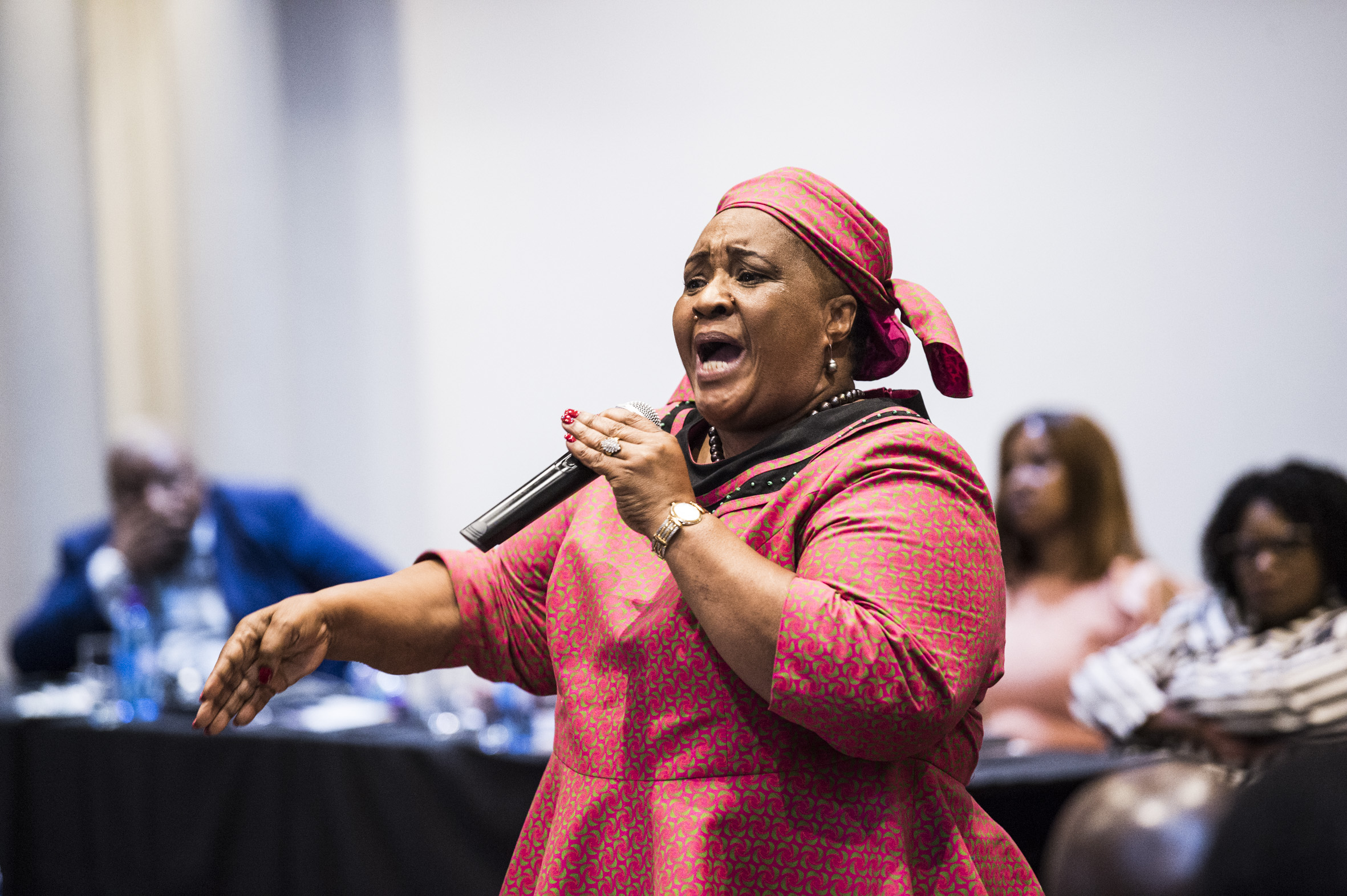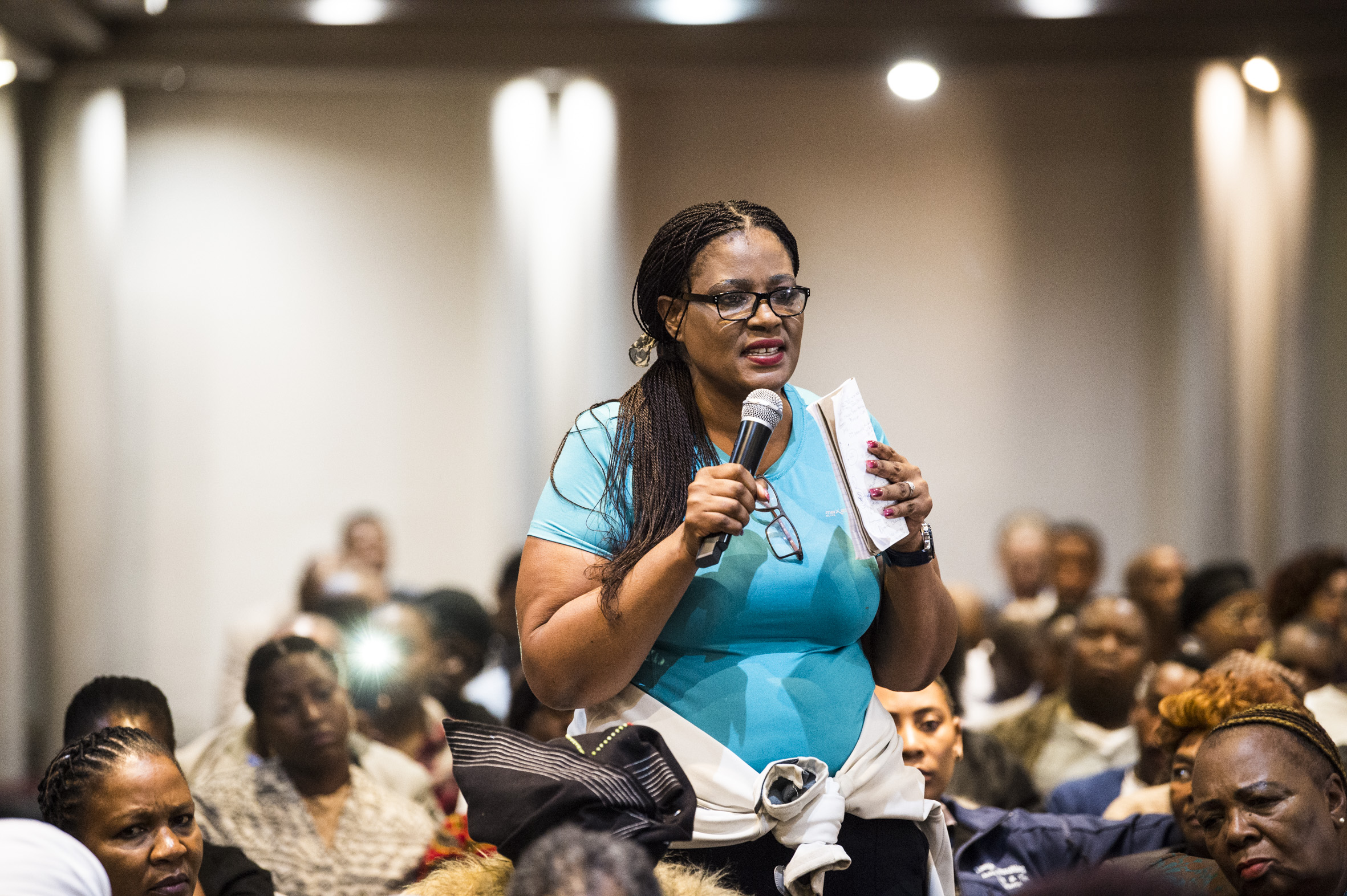Discarded plans: Last week the government mulled using Thaba Nchu as a quaratine and screening area for evacuated citizens. It has now decided to keep citizens in China. (Delwyn Verasamy/M&G)
The desperate parents of students stuck in China because of the coronavirus outbreak there called for the immediate evacuation of their children during a meeting with government departments and the Free State Premier in Bloemfontein on Wednesday.
The government, however, insists that the Chinese authorities should be left to handle South Africans based there.
The international relations and co-operation department’s director of consular services Chris Chetty told the assembled parents the government was working with China to ensure the safety of South Africans in that country and had established a 24-hour helpline.
“There are 197 South Africans in Hubei Province and we have spoken to 122 of them, who say they are safe — apart from anxiety— and are better off in China rather than being moved to other states, since China has better medical services,” he said.
Chetty said South Africa would be following the advice of the World Health Organisation (WHO), which had advised that people not be evacuated.
The national health department’s deputy director-general Dr Yogan Pillay, told parents that China’s efforts in dealing with the coronavirus outbreak were commendable.
“They have taken all the measures to make sure there are less chances of those from outside being affected. We are guided by WHO. And they have advised against trying to bring anyone back home. Even if we bring people back to South Africa, we would have to quarantine them for 14 days first,” said Pillay.
It seems, however, that fears that South Africa might not have the capacity to handle the coronavirus strain — Covid-19 — if it evacuates its citizens are at the centre of the government’s decision to leave them in the hands of the Chinese authorities.
The Mail & Guardian has seen a government memorandum detailing all the options available and what action should be taken in relation to Covid-19 as well as the pressure the government is subjected to as it is portrayed as being insensitive towards its citizens holed up in China.
The majority of the students there are in Wuhan, in the Hubei Province, the epicentre of the outbreak. The number of daily confirmed cases excluding Hubei, have reportedly decreased from 890 to 444 and the number of confirmed cases increased by 2 618 in Hubei, which forced authorities there to increase the number of health workers.
According to WHO’s latest figures, globally there are more than 75 000 confirmed cases, most of which are in China. Deaths in China have reached more than 2 000 with five outside of the country.
On Thursday experts warned about the spread of the respiratory disease as Japan, South Korea and Iran reported fatalities and a surge in cases. The Washington Post on Thursday reported that, “Many international experts say the disease will continue to spread globally even as the Chinese government seeks to present the image that it is coming to grips with the epidemic.”
The newspaper reported that new cases in China had dropped, according to authorities there, who had also changed for “a second time in a week the criteria for how cases are diagnosed and counted”.
The South African government is proceeding with caution. Its note reads: “As an emergency safety measure, all people, including RSA students, are now required to remain where they live to reduce the risk of exposing them to coronavirus … ”
Last week M&G revealed how the department of international relations had asked the South African National Defence Force (SANDF) to assist it in the evacuation of South African citizens from China.
As a result senior defence officials visited Thaba Nchu, 63km outside of Bloemfontein, to assess the area for purposes of quarantine and screening people for the coronavirus.
But the plan seems to have been ditched after an advisory by SANDF.
“Hasty decision on the action to take may have detrimental effect to the entire RSA community … Failure to provide proper advice to the political leadership on the merits of the management of the RSA citizens may lead to the President directing the nation on the basis of perceptions and not factual matters … the logistical arrangements that need to be put in place are quite huge … Majority of the rest of RSA citizens may be exposed to the virus … RSA may not have the necessary facilities and resources to manage the virus outbreak,” reads the SANDF advisory.
“Majority of RSA citizens will not be exposed to the virus and those in China will receive the necessary medical support … It is advised that while the state of preparedness of the country is being optimised, South Africans should be left to remain in China.”
 Traumatised: Lisebe Motaung (above), whose son is in Wuhan, called on Free State Premier Sisi Ntombela (below) to question the government’s decision not to evacuate students. Photos: Delwyn Verasamy
Traumatised: Lisebe Motaung (above), whose son is in Wuhan, called on Free State Premier Sisi Ntombela (below) to question the government’s decision not to evacuate students. Photos: Delwyn Verasamy  students parents attending the meeting Photo Delwyn Verasamy
students parents attending the meeting Photo Delwyn Verasamy
Traumatised: Lisebe Motaung (right), whose son is in Wuhan, called on Free State Premier Sisi Ntombela to question the government’s decision not to evacuate students. (Delwyn Verasamy/M&G)
The government further acknowledged that despite the department of health having implemented screening measures at all major airports, harbours and land ports of entries, the Chinese government is much better equipped because it has put facilities in place to manage the outbreak.
Lisebe Motaung, whose son Sthembiso is studying at Wuhan University, feels differently.
She said both she and her son are traumatised because the students are being held in one place and cannot move. “He calls me and WhatsApps me every day crying. He is anxious, scared and says the situation is depressing. They eat the same thing every single day, and even the people who bring them food are covered in protective gear, meaning it is not safe.
“I personally have not been sleeping for the past two weeks until I went to a doctor. Every time I can’t get hold of my child on the phone, I think the worst,” said Motaung.
“Why can’t the government bring back our children and quarantine them here in South Africa? There is no such thing as that they are comfortable and taken care of. They are lying to us. We ask the Free State government to challenge whatever decision has been made and bring them back home. We don’t know for how long this will go on.”
But Free State Premier Sisi Ntombela took a hardline stance and criticised the parents for complaining.
“Any parent who wants to evacuate their child from China, they must know they are doing so at their own risk … complaining and blaming one another will not help with anything now. In this dark moment, we need to pray for our kids in China. I am also getting sleepless nights because they tell me of the struggles they go through every day. They text and call me and explain how desperate the situation is,” she said.
Ntombela further accused the parents of being ungrateful because the Free State government had funded their children’s studies in China.
Itumeleng Letlatsa, who is a medical student at Wuhan University and lives in Bloemfontein, came back on December 28 last year, just before the virus struck.
“I am supposed to have been back to resume my studies for this year. But because of the coronavirus, they have advised us against going back for now. Nobody knows when we are going back. My visa expires mid-March. I am feeling so miserable right now but I guess the best way is to accept things as they are,” said Letlatsa, who is in regular contact with his compatriots in China.
“They are telling me it feels like prison. They eat at certain times in a day and their movement is restricted and controlled.”
Motaung said she is willing to do anything to bring back her son from China. “Even with the Premier’s sentiments. I really do want my child to come back. I need an approval letter from them in order to do this. They might delay that process, but if it can be done quickly I will make all means for him to come back home,” she said.